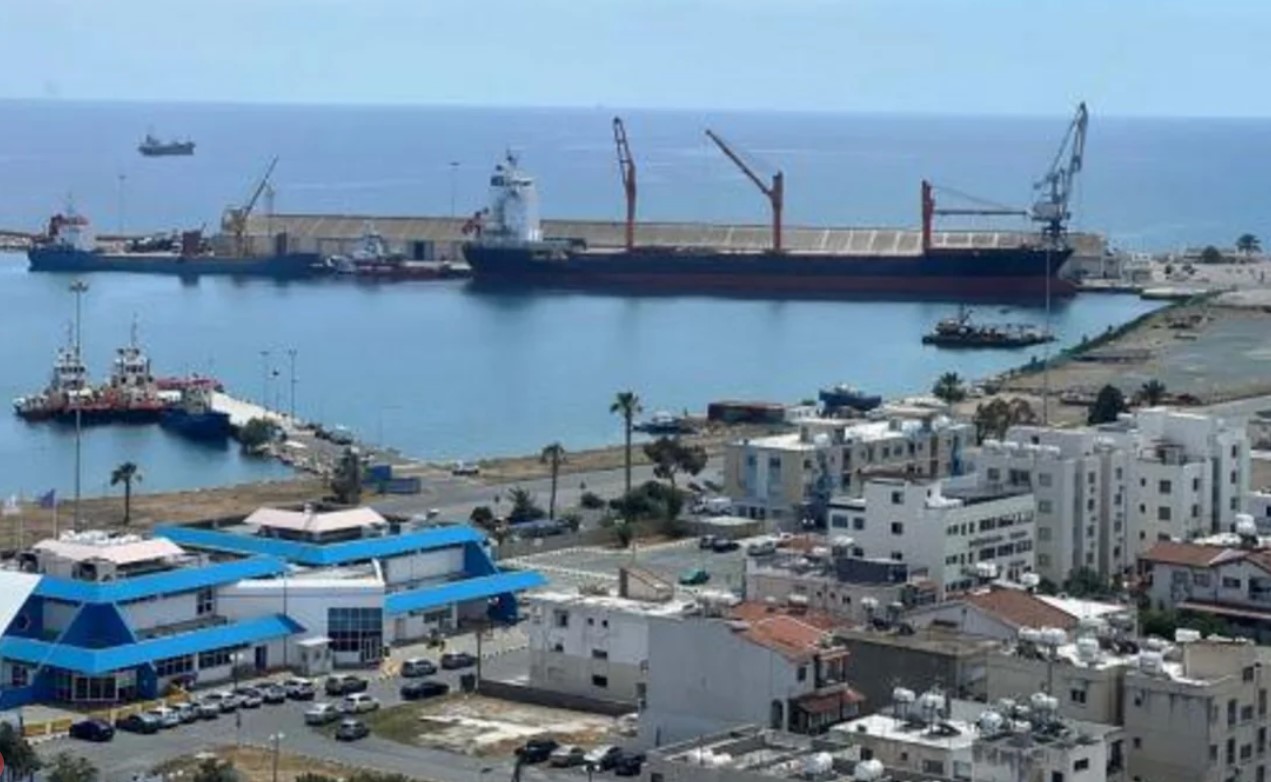The Larnaca municipality and the transport ministry remain at odds with one another over the future of the town’s port, with the municipality remaining vehemently against the idea of a new company being given the rights to operate the port for a transition period not exceeding five years.
Mayor Andreas Vyras said on Tuesday that at a forthcoming meeting with President Nikos Christodoulides, “we will explain why we believe that the decision to appoint a new administrator for five years is a detrimental development”.
“We will ask them to explain to us why they are rejecting the ports authority and its proposal to carry out project there. If we are not satisfied, we will go ahead with the protest we have planned for January 11,” he told newspaper Phileleftheros.
Transport Minister Alexis Vafeades, meanwhile, remains insistent that his ministry’s planned way forward is the correct path, and urged for no “hasty moves” to be made.
“We will have to wait and see what the outcome of the meeting with the president will be. However, there are real reasons why it was decided that the ports authority is better off focusing on the projects at Vasiliko and Polis Chrysochous,” he said.
He added that he “understands that there may be second thoughts” on the part of the Larnaca municipality but reaffirmed his position that renovation projects should not go ahead immediately, but begin once an expert study on the area has been carried out.
“In the discussions I have with various stakeholders in Larnaca, I find that there is more anxiety about projects being immediately implemented. I do not agree with this. Although I understand the desire to have these projects carried out immediately, the only thing worse than a project failing is the wrong project being done,” he said.
He added that the work being done at the Larnaca port now will “determine the future of the infrastructure for the next 50 or 100 years”, and that for this reason, “I hope that we will remain on course to examine and draw conclusions with scientific and economic data what the right investment for Larnaca should be.
“I believe that we need to be a little more patient to see better how we are progressing.”
To this end, he said the government would hold a tender to select the person who will carry out the study of both Larnaca’s port and marina in the early part of next year.
Despite the continuing disagreement between municipality and ministry, there has been some progress on finding convergences with regard to the future of the marina.
The ministry has accepted in principle the municipality’s proposal for the marina to be managed by the Cyprus Marine and Maritime Institute (CMMI), with Vafeades confirming on Tuesday that he had already met with the CMMI’s chief executive officer Zacharias Siokouros.
He said Siokouros “offered reassurances that he is able to manage the marina”, with a new meeting set now be scheduled wherein details will be discussed.
Additionally, he said he has requested the positions of the legal service and the public works department on a potential CMMI takeover, with it hoped that the process will be completed within three months.
The municipality’s distaste initially came from the government’s decision to open a new tender for a private company or two to operate and maintain the port and marina during a transition period not exceeding five years while long-term investors to upgrade both sites’ infrastructure are sought.
However, the municipality’s preference was for the ports authority to operate the port until a long-term investor is found.
“The ports authority itself says that not only is it capable of temporarily managing the port, but it can also make serious investments which will contribute to the port’s development. However, this possibility was not considered at all by the ministry,” the council said.
The government had announced in August that the development of Larnaca’s port and marina would be split into two projects. The move comes after the government had in May terminated its agreement with Kition Ocean Holdings, the company it had initially entrusted with a combined project which was set to cost €1.2 billion.
The contract had been terminated after the government had accused Kition of refusing to pay a requisite financial guarantee for the project’s operation and maintenance.
The government had insisted Kition pay a total of €8m, while Kition believed the figure had been agreed at €4.2m.






Click here to change your cookie preferences